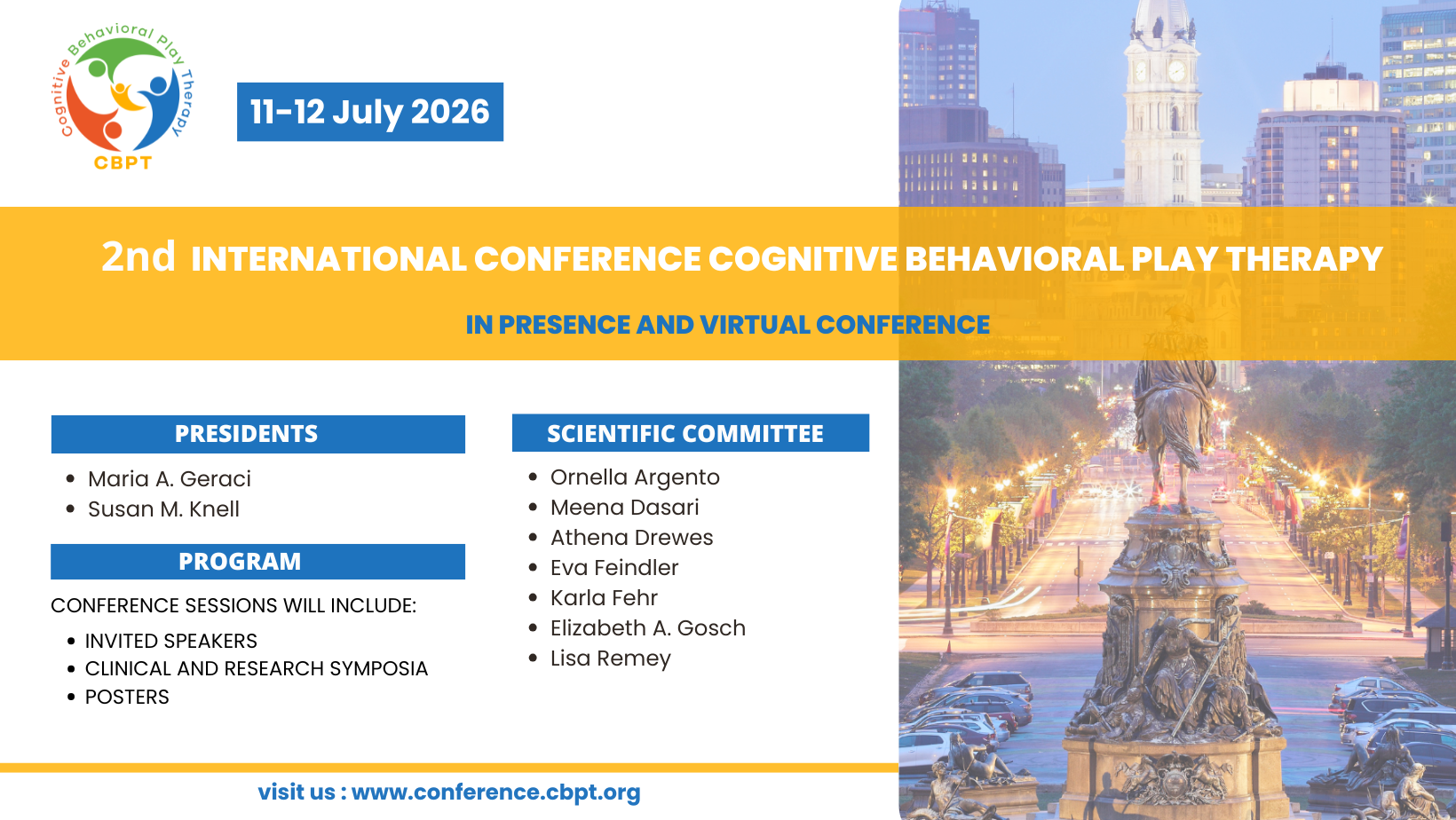CONFERENCE
The goal of the conference is to spread information about CBPT and bring together professionals and researchers to discuss this important psychotherapy for young children.
In this second edition, papers will address the following topics organized into sessions:
- Evaluation of the theoretical model and developmental perspectives
- CBPT evaluation and intervention protocols
- Clinical settings/applications
- Research/CBPI
- Supervision of CBPT
- Diversity and culture

The theoretical model of CBPT 30 years after its construction, maintains central the integration of cognitive and behavioral interventions in the play therapy paradigm. Play activities, as well as nonverbal forms of verbal communication, are used to promote the development of problem solving skills.
Therefore, CBPT proposes a theoretical framework based on the principles of cognitive behavioral therapy, making them appropriate for the child’s developmental level. Designing specific play therapy interventions for young children facilitates their direct involvement in therapy. By providing these types of developmental interventions, the psychotherapist helps children benefit from a type of psychotherapy that might otherwise be inaccessible to them.
Through CBPT, more adaptive coping skills can be learned and structured, goal-oriented activities can be offered. In addition, CBPT provides a space where the child can bring out spontaneous content within the session and successfully express their experiences.
CONFERENCE
The conference will welcome presentations by experts in Cognitive Behavioral Play Therapy, Cognitive Behavioral Therapy, and Play Therapy
This conference is an opportunity for clinicians and researchers to review current knowledge and future perspectives.

